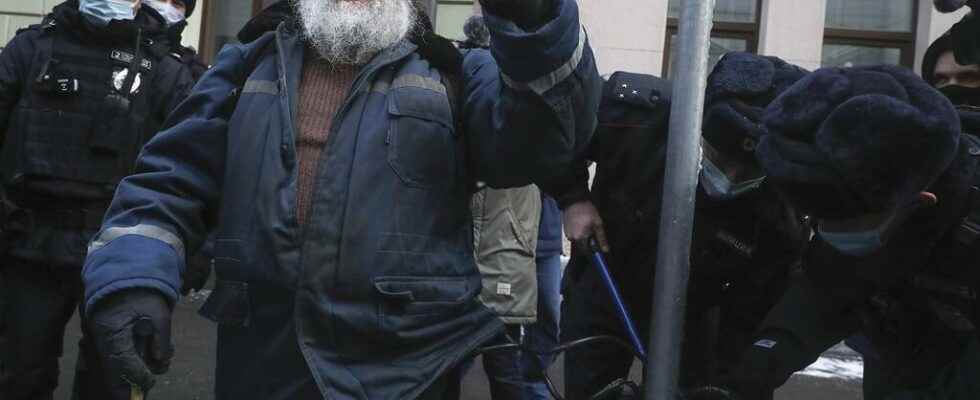This Tuesday, December 28, the Russian Supreme Court announced the dissolution of the Memorial NGO for violations of a controversial law on ” foreign agents », A decision that the NGO described as political. For Françoise Daucé, director of studies at the École des Hautes Etudes en Sciences Sociales (EHESS), specialist in Russia and member of the NGO Memorial France, this decision marks a step backwards.
The announcement of the dissolution of Memorial comes the day after the condemnation of the historian Yuri Dmitriev, a member of the Russian NGO, to a sentence of 15 years in prison, and on the eve of a hearing in another case concerning the Memorial Human Rights Center, accused of apologizing ” terrorism and extremism “, In addition to violations of the law on” foreign agents “.
RFI: What is your reaction after this decision of the Russian Supreme Court and how can we analyze it?
Françoise Daucé: This decision is particularly disturbing, even frightening, since one has the impression of facing a rather fatal turning back. It is almost thirty years to the day after the fall of the USSR, and one has the impression of witnessing a return to the Soviet period. Indeed, the Memorial NGO, created thirty years ago, during perestroika, has done a lot to publicize the crimes of Stalinism on the one hand and to defend human rights on the other. It is now liquidated. I think this is a particularly disastrous decision for the association itself, for all of its members. And then it poses questions for the whole of Russian society and the possibility of acting and expressing oneself freely.
Is this decision part of a sort of process of repression against NGOs harming the Kremlin?
This process of repression was in fact started a long time ago. We are facing a fairly slow movement, which began in 2012 with the adoption of the law on ” foreign agents Which classifies in this category associations receiving foreign funding and exercising a political activity. But the notion of political activity has never been precisely defined, so anything that has to do with public speaking can fall under this accusation.
Since 2012, the law has affected many associations, including Memorial, but also many others. And especially since 2017, it has been extended to the media. Currently, a number of them are registered as ” foreign agents From the Russian Ministry of Justice. And since this year, journalists are also considered ” foreign agents “. So we can see that this is a long process which is only getting stronger. The decision to liquidate the Memorial NGO is basically the culmination of this long process.
► Read also: Russia: the Supreme Court dissolves the Memorial NGO, pillar of civil society
Can this decision be emulated? Are we going to witness a crusade by the Russian authorities against the NGOs present in its territory?
This is the risk that all the associations, organizations and classified media run “ foreign agents »: Since if Memorial is certainly the best known and most respected association, in the wake of its liquidation other associations but also the media risk in turn being the subject of a process of dissolution. We can therefore think that the decision of the Russian Supreme Court marks a turning point, and indeed goes in the direction of an increased repression against all the associative and media actors who try to have a discourse independent of that of the power, which try to have an autonomous action – actors who do not fit into the official narrative, and who are sanctioned for this.
What are the consequences for the Russians of such a decision?
The Memorial association, since its creation, has worked a lot for the rehabilitation of the history of Stalinist repressions, while also developing a critical point of view to try to initiate a public reflection on what Stalinism was and what that happened at that time. And basically, this critical reflection would have been necessary to try to overcome this story and to prevent it from happening again.
By liquidating the NGO Memorial, we have the impression that it is this critical look at the past that is prohibited, and we have the feeling that we are seeing again these authoritarian, repressive, coercive practices of the past. So ultimately it is all this work on history that cannot be done, which questions the future of Russian society and the risk of a return to these terrible practices of the past.
